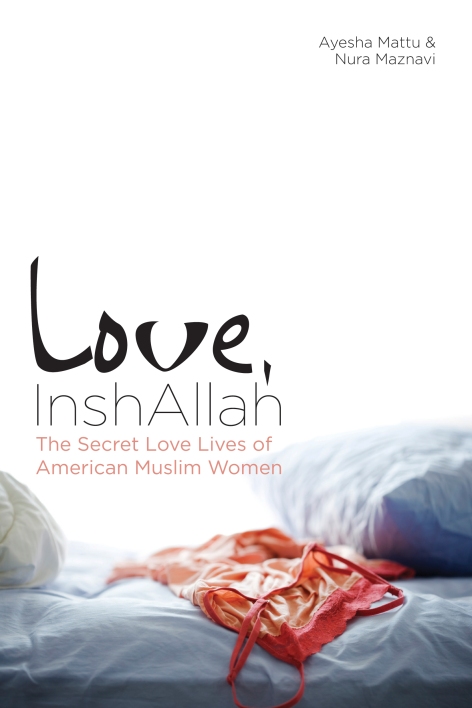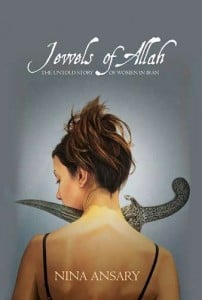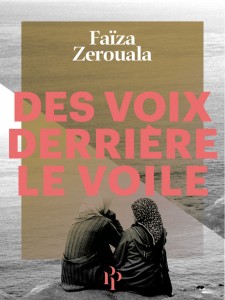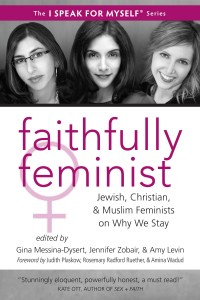“I wasted years because I didn’t think I fit into their conception of Islam or God. And I don’t. But God is greater than all that. There are as many ways to Him as there are people on the planet.” (Ayesha Mattu, “The Opening,” p. 54)

For some writers, Love InshAllah is about reconciling their American Muslim identity with the complex socio-cultural mores surrounding romantic relationships. For others, however, the book is about strengthening their relationship to the Almighty. What most readers will ultimately agree on is that all the stories contained in this collection are of hope. Of possibilities, that despite their complex personal life stories, ethnic backgrounds and their respective Muslim denominations, love happens, and apparently, always under the watchful eye of God.
Edited by Ayesha Mattu and Nura Maznavi, who also contribute with “The Opening” and “Last Night on the Island” respectively, Love InshAllah is a compilation of stories by American Muslim women, writing on the challenges of finding love within Muslim communities across the United States. These are personal and often candid accounts of Muslim women (gay and straight) engaged in romantic relationships whilst simultaneously reconciling their faith with modern dating rituals and practices. Themes covered in the stories include the role family and friends play in bringing couples together (or, for that matter, keeping them apart); coming-of-age anecdotes on dating and commiserations on “first times”; finding love the second (and third) time around; and finally discovering their significant other in the most unexpected of places, a common, reoccurring thread in all stories contained in the book.
Most stories have happy endings – they are personal accounts of how two people meet and, despite cultural and socio-economic odds and expectations, find themselves committed to each other. “Leap of Faith” exemplifies this, where a young couple agrees to marriage after having known each other for only a brief period. Similarly, “Otherwise Engaged” by Huda Al-Marashi is a story of young, Iraqi couple and briefly references the Sayed/non-Sayed marriage taboo which serves to highlight the complexities of finding a spouse, one that meets clan and caste specifications within Muslim culture. “It Will Be Beautiful” is about a Hindko/Pushto-speaking accountant, Yasmine Khan, who finds solace with Yasser, a divorcé with a young daughter.
Some stories are accounts of women marrying outside their respective ethnicities. In the case of Mattu’s “The Opening,” the story unfolds in a post 9-11 time-period. “Love in the Time of Biohazards” by Melody Moezzi tests the resolve and patience of a young couple surviving the author’s sickness. While all the stories in this book are exceptional and unique in their own way, the following quote from Moezzi’s chapter further echoes the “finding-love-through-God” element found in all the stories:
“I had seen God in everything there, the people I met, the lakes I swam in, the glaciers I slid down, the wildflowers I couldn’t pick, even the bears and moose that terrified me -and I had fallen in love with Him. . . [A]nd just as Northwestern Montana was in many ways the place that brought me to God, Mathew was the person” (p. 15).
Not all the stories have triumphant rom-com endings – many are simply accounts of how their faith helped them grow as individuals in their respectively relationships. “A Prayer Answered” follows the story of Tolu Adiba, a gay Muslimah who asks God for a “pious spouse”. Her prayers are answered with Hafsa, a fellow niqabi, and while the relationship does not last, the author is grateful for their time together. Suzanne Syeda Shah’s “Kala Love” is a brutally honest account of love and sex for an American Muslim of Bengali origin. She also makes references to the emotional abuse suffered for being “dark skinned”, hence the reference to “kala” or “black” in the title. Kala, unlike the word black, has far more a derogatory tone and if not spoken in the correct context can be considered offensive in parts of South Asia. I was particularly saddened while reading this account, for there is reference to a rape, what the writer considers “her only experience with sex” (p.254).
Premarital sex features in some of the stories, and while this may offend some readers, the authors’ stories – and more importantly their journey in love – are still immensely relevant. If there is one major underlying theme in all the stories, it is the relationship each woman has, sustained, or even gained with God, despite the personal challenge each faced in their tenuous relationships.
One of my favorites happens to be “Love in the Andes,” by Angela Collins Telles. I lived in Buenos Aires and visited Bariloche, and while my South American experience was amazing, it always felt so far from home. Other than a smattering of Muslims of Iranian origin, the Islamic community was small, which makes this story all the more magical. It truly does feel like God’s work to have brought two people together, in a bar no less, in Argentina.
The editors acknowledge the controversy surrounding the subtitle “The Secret Love Lives of American Muslim Women” (further exploited by the cover, depicting a negligee, lying on a mussed duvet) which may be construed as feeding into an “Orientalist fantasy of Muslim women.” They write that they had hoped to use this book to dispel American stereotypes of Muslim women in romantic relationships. They have succeeded in their goal, and I imagine that non-American Muslim women too can identify with these stories. Islam and its inherent role in culture influence Muslim communities around the world, whether in predominantly Muslim nations or countries with large Muslim populations. With exposure to education and an increasing sense of empowerment, Muslim women everywhere are learning to strike a fine balance between expected social customs and personal choices when it comes to the complexities of love and relationships. Their stories are powerful and relevant, and further demonstrate the full spectrum of experiences amongst Muslim women.














